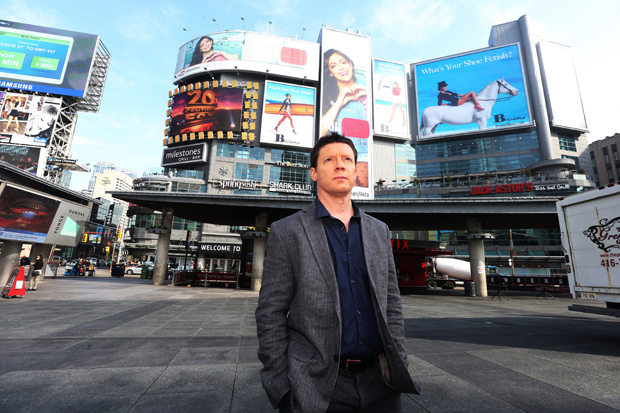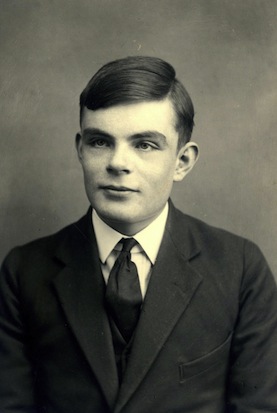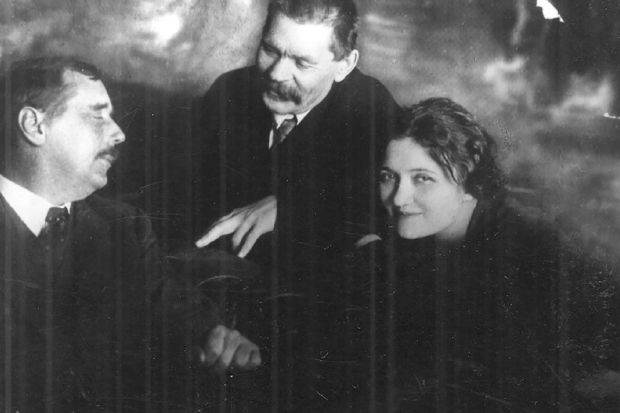Bit of Kant, bit of Kierkegaard, bit of motorcycle maintenance. That’s one take on The World Beyond Your Head, Matthew Crawford’s philosophical polemic about how virtual reality is impinging on real reality. Actually, his targets in this book are Descartes and John Locke, with whom, he reckons, the rot started when it comes to thinking about the human person as a cerebral calculating machine, divorced from his own body and from the world around him. But he’s got it in for corporate capitalism, too, and its manipulation of our attention by hijacking every communal space — aural and visual — to get us to buy things.
Perhaps I’m not quite winning you round here to this book, which I really, really like, and really, really want you to read. Let me try again. Crawford is worried about the way we are becoming divorced from the material world around us — and from other people. His contention is that we are at our most human when we’re fully engaged with other people and with material things; which sounds obvious but isn’t. For the thrust of our technology and our politics has been to isolate us from both.
Contemporary politics — especially the libertarian sort — sees us as free individuals exercising endless consumer choices, even though it’s plain that how we make choices is conditioned by what’s around us. Contemporary technology tends to isolate us from the material world, too, and not just smartphones. For instance, modern cars simulate reality — they artificially replicate physical pressure on a brake pad and the noise an engine should make in response to your driving; what they don’t do is enable you to experience the road directly and sensuously the way cars once did. Thus, we’ve become deskilled, which is to say, less human.
Crawford is the best exemplar of what he’s on about. He’s a philosopher who runs a motorbike workshop in Virginia. And motorbikes offer useful insights into how human beings engage with their surroundings — we do it instinctively, through experience, not through some cerebral process. In fact, if a motorcyclist tries to rationalise what he’s doing, he may come a cropper — you ride a bike better if your body interacts with your surroundings and you become more skilled at doing that the more you do it. You need engagement with real life, real things, to get outside your head.
So far so obvious? If only. The opposite of this direct physical engagement with people and things is the Las Vegas world of computerised gaming machines; a hellish vista of where technology may take us. Old-style mechanical slot machines, with weights and springs, had some sort of physical rationale. The odds could be manipulated but they could, up to a point, be worked out. Not any more. Computerised machines operate on an entirely random basis; their workings can’t be discerned through experience. So the humans pitting their wits against the machine can never win, but they can be programmed through intermittent winnings to keep trying until they’re cleaned out. In this scenario, to talk, as libertarians do, about free choice is nonsense; the zombies seeking to beat the machine are the least free people on earth.
On this side of the Atlantic, we’re less taken than in the US with the Locke view of the world as a contract between the individual and society, which is what he’s really gunning for. But his argument that we’re embodied creatures, makers, not mere rational agents, is true all round. And when he talks about engaging with other people in terms of what we do and say to them rather than what we think about them — mindfulness courses, for instance, will instruct you to direct compassionate thoughts at other people — well, that brings us right into the territory of virtue ethics. In other words, you become good by doing good, not by being or thinking nice.
As for his contention that silence in shared public spaces, freedom from intrusion, is a precious thing, not a commodity to be commercially exploited, I’d say it should be a Spectator crusade.
If Crawford’s book is about a ‘crisis of attention’, then Michael Corballis’s The Wandering Mind should be some sort of corrective. The subtitle is ‘What the Brain Does when You’re Not Looking’, and as professor of psychology you’d think he’d know what it’s up to. But apart from the useful insight that when the brain is supposedly resting it’s still active, there’s nothing here to give pause for thought. What is clear is that the relation between the brain and the whole body is more complex than we suppose. Thomas Aquinas once observed: ‘anima mea non est ego’ — my soul is not me (in other words, my body is me too). Nowadays, we could say the same about the brain.
Got something to add? Join the discussion and comment below.
Get 10 issues for just $10
Subscribe to The Spectator Australia today for the next 10 magazine issues, plus full online access, for just $10.
'The World Beyond Your Head: How to Flourish in an Age of Distraction', £14.99 and 'The Wandering Mind: What the Brain Does When You’re Not Looking', £12.60 are available from the Spectator Bookshop, Tel: 08430 600033
You might disagree with half of it, but you’ll enjoy reading all of it. Try your first month for free, then just $2 a week for the remainder of your first year.














Comments
Don't miss out
Join the conversation with other Spectator Australia readers. Subscribe to leave a comment.
SUBSCRIBEAlready a subscriber? Log in